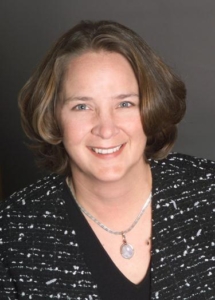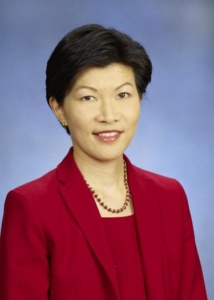 Regarding her career path in technology, Mary Byron notes that it was more of a serendipitous accident as opposed to a calculated plan.
Regarding her career path in technology, Mary Byron notes that it was more of a serendipitous accident as opposed to a calculated plan.
“I didn’t study technology in school, but I was very lucky to have a job in college doing general office work,” said Byron. “One of the tasks was backing up the Word Processing system. They needed someone who could manage pretty basic technology functions and I was fortunate enough to be exposed to this kind of work right around the time personal computing and networking was starting to be widely developed.”
She continued, “As it turns out, I loved technology and I was skilled at it. So I never looked back after starting down that path.”
Career Path in Technology
Throughout her career with Goldman Sachs, Byron has had the opportunity to lead the implementation of many new technologies for the company, including building out the IP network for the firm in the nineties. “I was fortunate that as the Internet really took off, so did all the technologies that supported it and the need for companies to adopt those technologies,” explained Byron.
Byron recalled, “We didn’t even have email when I started at the firm, and every division ran its own technology. In 1994, the company decided to streamline all of the individual IT departments into one centralized division. For seven years we worked on converging eleven different email systems into one uniform system.”
In the early 2000s Byron became the Co-head of Goldman’s technology infrastructure, which included all data centers, networks, computing platforms, operating systems, databases, and help desks.
In 2005, Byron was chosen to be the CIO for Goldman’s Asia business, where she spent six years. “It was exciting to be part of this growth market,” said Byron, “as we were establishing our business in China and India, which are both countries with very different levels of technical prowess and technology adoption.”
During this time, Byron worked on establishing good governance and best practices for the technology division. Organizing this aspect of the business and showing people how to think about technological investments in commercial terms is something that Byron is extremely proud of. She said, “Moving these ideas forward so that they became institutionally recognized as the way we address technology has been very rewarding.”
Byron stated, “I think of all technology as an evolution. In the past, one of the projects I worked on was our first implementation of grid computing, which was the precursor to the cloud. Now, we are working a lot on dynamic computing and the automation of infrastructure, which are things that we identified a need for ten years ago and now have the technology to implement.”
The grid computing project, which Byron referred to as the compute farm, is one project that stands out to her as being one of her most exciting professional achievements. She explained, “When we first started, we anticipated one or two thousand computing engines running on the grid. Now we have tens of thousands computers running on it.”
This dynamic nature of technology and applying technology to solve problems are two things that make Byron excited about the work she currently does in her role as Global Head of Technology for the Federation. “We are spending a lot of time right now working on big data and data governance,” said Byron.
She continued, “Sometimes our best technological ideas are not really about the technology at all, but how we can leverage the technology to make our business bigger and better.”









